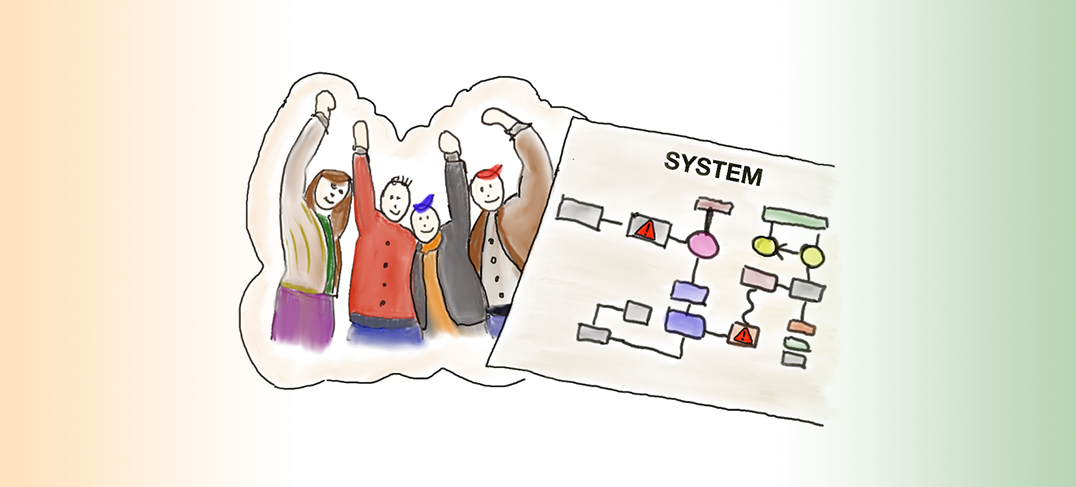Learning to see with your new Eyes
I was thinking about the poet, Marcel Proust who said: "The true act of discovery is not to find new land, but to see it with new...
Category: OpEx Basics
Sign in

People vs System
I want to talk a little bit about people versus the system, why failure normally doesn't fall on the person but the system that is supposed to support the person.
The Surprising story about the Quality Procedures
Let me tell you a story, Once I was working in a plant, and I was challenging the new quality manager that was a young guy, very professional guy, driven person. We were walking around the shop floor and we looked at things and talked a little bit in general. Then we passed a cart with all sort of scraped parts. It was a red tag on it and scrap parts there, so I asked him, I said,
“What's going on here? Do you know what's going on?”
And he said, “Don't worry about it. It's taken care of.”
I said, “Well, what happened?”
He: “Don't worry. We have followed the procedures.”
I said, “But, tell me what happened.”
He said, “Well, actually, the guy over here, the operator, made a mistake, so he scrapped the parts. We've given him a written warning.”
I said, “What do you mean writing warning?”
He:“Yeah, that's the procedure.”
The Aha moment
“So you know that he had the right training, he had the correct tools, the machine was perfect, the material was perfect, the specification was perfect, everything else was perfect. It was really him making that mistake.” And, of course, the manager said, “I didn't think about that.” Well, they changed procedures after that, but here's the thing, people don't fail. It's the system that fails. Think about that. If the system around a person isn't built for success of that person, it's very likely that people randomly will fail. As their leader, your job is to make sure the system functions and that is where you should look first to try to find out what malfunctioned in the system that made the person fail, and learn from that. Strengthen the system instead. People don't fail. It's the system that fails.
Take the blame
As a leader, you need to take the blame for system failures. A good 5 Why analysis should point at system failures that made a person fail, maybe as a last step if nothing else has failed there is a chance the person failed, very unlikely. Systems are owned by the leader of the area and that's where you go first to correct any problems. A strong leader will take the blame and relief people from the pressure of failure. The leader will ensure that the root cause is found and the system is repaired or developed.
Is it always the Leader who is responsible?
Not necessarily responsible but accountable for the people in the team and they are responsible for the work they do. With accountability comes the ownership of the processes/systems. Leaders who blame others for the failures are in my book not able to lead themselves but find a way to handle their own anxiety by putting blame on others. Strong leaders, who people choose to follow, makes the failures a feedback session with the focus on the future by learning from the past.

Failure is success in Progress
If the mind-set around failure is that it's good feedback and it's looked at in that way, you can use the failures to reach success. Even in failure you have success, normally it wasn't everything in the process that failed, mostly it worked but some part failed. Find it, resolve it and move on. That's the way strong leaders act.
Johan Majlov, Founder & CEO Lean Dimensions International
[email protected]